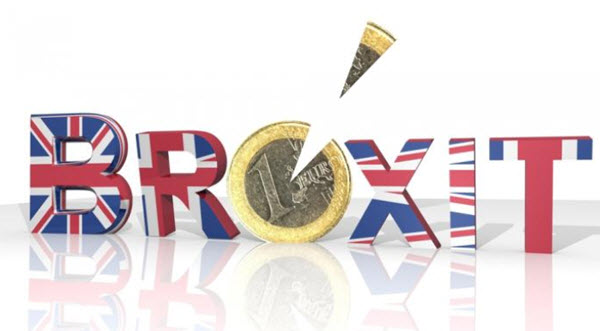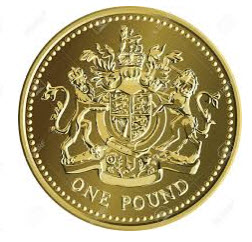Brexit Britain: Is the economy tanking?
During the EU referendum campaign, many predictions were made about the short- and long-term economic impact of a leave victory. So, what’s happened to the British economy so far – now when we have put half a year between us and the historic 23 June 2016? Let’s take a look at some statistics regarding post-referendum UK, keeping in mind that the nation is still very much a part of the European Union with two years of formal exit negotiations expected to commence in March 2017.

House prices & Construction
Right before the referendum, the British construction industry suffered a downturn, where uncertainty regarding the outcome of the referendum acted as a break on the sector as a whole. Despite not knowing much about how Britain will fare in the exit negotiations with the European Union, the sector now seems to be in a better mood with the latest Markit/CIPS UK Construction Purchasing Managers’ Index rising to 56.1 from its 45.9 July mark. It should be noted however that a sinking pound sterling has made imported materials more expensive for British-based contractors, and input costs are rising at a pace not experienced since July 2011.
When it comes to housing, the number of homes for sale is near its 30-year nadir, and statistics from the Bank of England show that the number for new mortgages being approved by banks and building societies was lower in July than at any point during the previous year and a half.
In October, a total of 97,640 residential properties were purchased in the UK. While this is a 1 percent rise compared to September, it is still 8 percent lower than October 2015.
The stock market
British stock markets have remained pretty bullish all since the referendum, but despite this the FTSE 100 and the FTSE 250 both closed at a high end this year. The FTSE 100 actually closed at a record breaking high, up 14.4% during the year of 2016. The FTSE 250 – seen by many as a better gauge of the British economy due to its higher amount of domestic-focused stocks – didn’t do as well as the FTSE 100 but still ended the year 3.7% ahead.
This has been good news for the British people who have seen the value of their savings increase and bad news for investors who short sold British stock after the referendum. There are a long row of different investor groups that have benefited from the up-going trend. Long term investors as well as trend and binary traders are found among these groups that have benefited from the bullish stock market (Source),
Exchange rates
After the 23 June referendum, the Pound Sterling fell dramatically against other major currencies, including the Euro. Instead of picking up after the initial shock, it dropped further down to a three-year low against the Euro following new Premier Minister Theresa May’s statement that formal Brexit negotiations would commence before the end of March 2017.
 Right before the referendum, £1 equalled €1.30. By October, the value of £1 was down to €1.09. There is some light in the tunnel though. Late in the year numbers from 22 December show an exchange rate where £1 = €1.18. Is the sterling making a comeback, slowly but steadily?
Right before the referendum, £1 equalled €1.30. By October, the value of £1 was down to €1.09. There is some light in the tunnel though. Late in the year numbers from 22 December show an exchange rate where £1 = €1.18. Is the sterling making a comeback, slowly but steadily?
As far as the USD goes, £1 was worth $1.47 right before the referendum and $1.23 on 22 December.
The fall of the sterling has been a mixed blessing for the British economy. It has made it more expensive to import goods and go on holiday abroad, while simultaneously making domestically produced goods more competitively priced – making them more appealing both to domestic shoppers and foreign importers.
So, while British manufacturers and retailers are struggling with increased import costs, UK’s domestic tourism sector has reported a significant boost since the referendum. This boost is explained by two driving forces: Brits are avoiding holidays abroad due to the low value of the pound, while foreigners are showing an increased interest in visiting the UK now when they get so much more bang for their buck.
Interestingly, imports to the UK actually hit a new high in the month just after the referendum, causing an already substantial trade deficit to widen to a whopping £5.1 billion. In October, imports decreased by £1.8 billion – most likely due to the decreased value of the pound sterling. A weak pound is also believed to have fuelled international interest in British goods. In October, exports rose by £2 billion, chiefly thanks to machinery and transport orders. The trade deficit for October thus narrowed to £2 billion.
Interest rates
The Bank of England has worked pro-actively to boost the British economy since the referendum, and this work has included a £70 billion extension of the bank’s quantitative easing programme.
In August, Bank of England carried out its first interest rate reduction since 2009, lowering its rate from 0.5% to 0.25%. By December, this rate was still at 0.25%. The lowered interest rate has been implemented side by side with a £100 billion scheme intended to force retail banks to pass on the lowered interest rates to households and business.
Not everything is rosy however. The low interest rate has made it even more difficult than before for pension funds to increase in value. A low Bank of England interest rate for borrowing translates into low bond yields, and we have seen a distinct worsening of the already significant pension funds deficit during the second half of 2016.
Overall
- The UK economy grew by 0.6% in the three months following the June 23 referendum.
- In November, inflation reached its highest rate since October 2014. The Consumer Price Index (CPI) stood at 1.2% in November 2016. This can be compared to the 0.5% CPI from June 2016.
- By September, GfK’s consumer confidence index had returned to pre-referendum levels. In November, it dropped 5 points, despite retail sales increasing by nearly 6% in November 2016 compared to November 2015.
- Posted by
 admin
admin - Posted in Uncategorized
 Jan, 05, 2017
Jan, 05, 2017 Comments Off on Brexit Britain: Is the economy tanking?
Comments Off on Brexit Britain: Is the economy tanking?
Latest news
- Consequences of Brexit
- MiFID II & Brexit
- Referendum followed by 106% rise in Irish passport applications from Britain in November
- Brexit Britain: Is the economy tanking?
- Brexit Britain: What’s going on?
- No current plans for a British independence day on June 23
- UKIP: James quits; Farage steps back in
- Brexit challenge expected to quickly reach Supreme Court
- Will there be a second Scottish independence poll?
- Stock markets plummet in the wake of Brexit – investors looking for alternative investments

 (Closed)
(Closed)